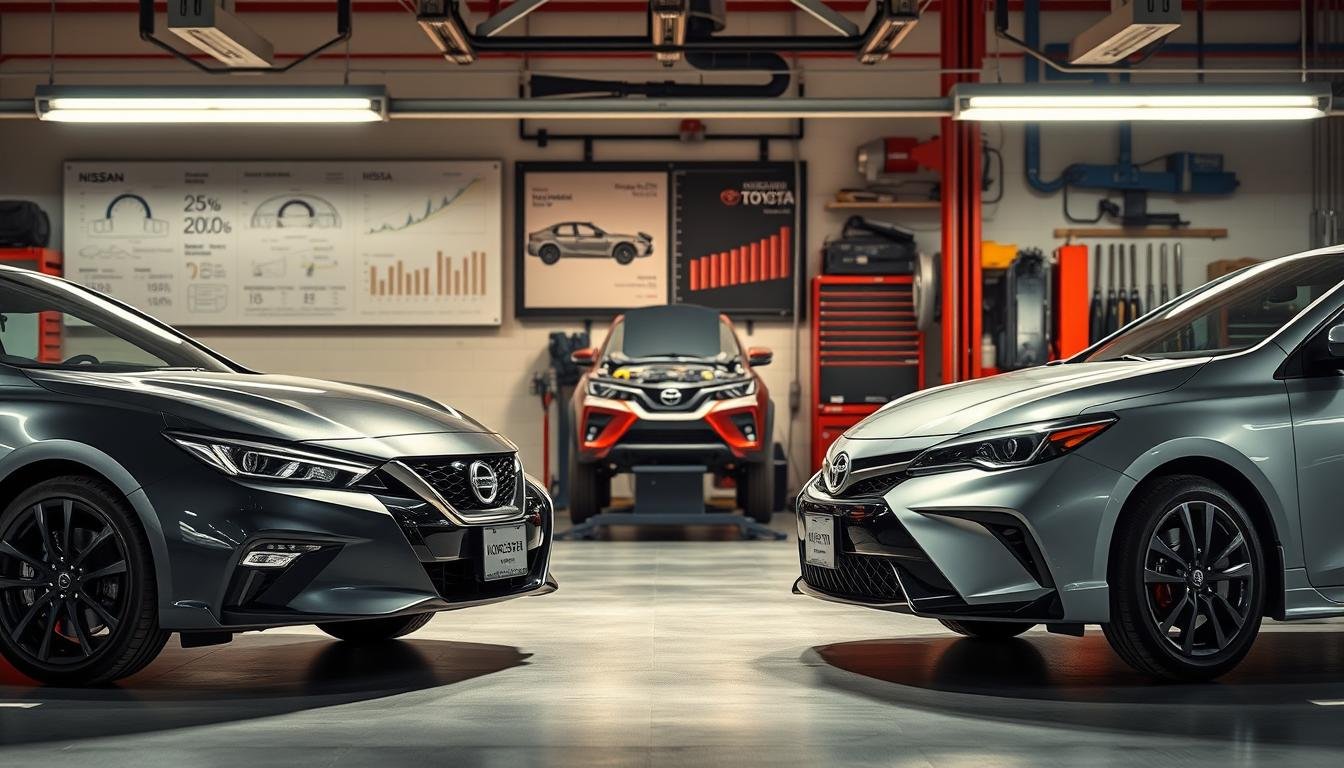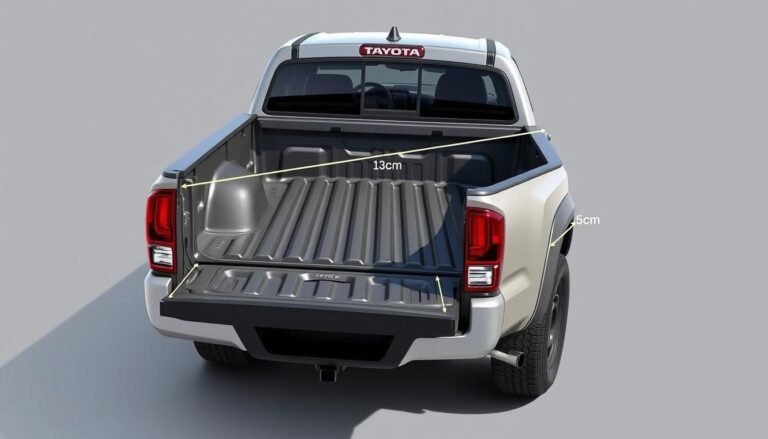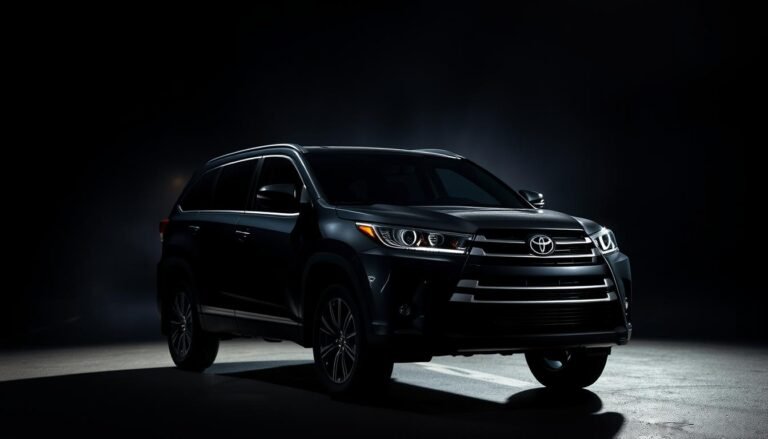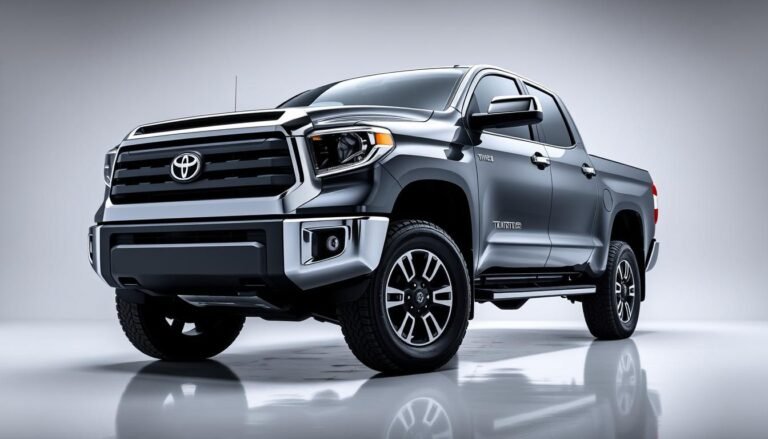Nissan vs Toyota Reliability: Best Choice For You
Deciding between Nissan vs Toyota for reliability is crucial. Reliability matters a lot for car owners—it affects happiness and car value over time.
Nissan and Toyota both have a strong reputation for making cars you can count on. This guide will give you all the details, reviews, and facts you need to pick the best brand.
We’ll look at specs, consumer reports, and how these cars do on the road to show why your choice is important. You’ll get a clear look at each brand’s reliability.
This will help you make a confident choice for your next car. Knowing which car brand is more reliable, you can pick a dependable vehicle that meets your needs.
Introduction To Nissan and Toyota
Nissan and Toyota are giants in the car industry from Japan. They’re known for making cars that last, with cutting-edge tech and smart looks.
Toyota, in particular, has won over many fans for its reliable and tough vehicles. Nissan shines in the SUV and electric vehicle spaces.
It’s known for excellent performance and stylish designs. As people look for greener options, Nissan’s commitment to electric cars stands out.
Both brands are tops in reliability, each appealing to unique customer needs. Nissan is more about bold and fun rides.
Toyota, however, focuses on reliability and ensuring cars hold their value. Knowing this helps you pick a car that fits what you’re looking for in terms of performance and reliability.
History of Toyota and Nissan
Toyota started in 1937, originally part of Toyota Industries, focusing first on automatic looms. It grew to be the biggest car maker in the world.
Innovations like the Toyota Production System in the 1950s helped it become known for reliability and efficiency.
Nissan began in 1914 as Kwaishinsha Motor Car Works and became known for its high-performance cars.
Popular models like the 240Z helped it grow. Nissan is now known for both performance and economy, with a big focus on innovation and sustainability.
Toyota and Nissan have shown solid strategies in their developments over the years. Toyota is known for its quality, while Nissan focuses on dynamic performance.
Together, they’ve had a huge impact on how cars are made around the world, keeping their legacies alive.
Nissan vs Toyota Reliability
Choosing your next car requires a close look at reliability. Nissan and Toyota each have pros and cons when compared.
We’ll share insights from consumer reports and model longevity to help you decide.
Consumer Reports Reliability Rankings
In 2021, Toyota ranked as the second most reliable car brand, according to Consumer Reports. Nissan was further behind, taking the sixteenth position.
This shows Toyota’s cars are seen as more dependable. People often pick Toyota for its strong record of making long-lasting vehicles, which means better reliability for owners.
Longevity of Vehicles
How long a car lasts is important for getting the most out of it. Toyota’s models often hit over 200,000 miles with fewer problems, showing they’re built to last.
Nissan makes good cars too, but they may not hold up as long as Toyota’s. Choosing Toyota could mean spending less on repairs and having a car that lasts longer, making it more appealing for reliability.
| Brand | Consumer Reports Rank (2021) | Average Lifespan (miles) |
|---|---|---|
| Toyota | 2 | 200,000+ |
| Nissan | 16 | 180,000+ |
Performance Comparisons
Choosing between Nissan and Toyota depends a lot on performance. These brands cater to different tastes. Toyota’s performance is known for its smooth, reliable engines.
These engines are great for daily driving, long commutes, or family trips. You’ll enjoy driving a Toyota because of its comfort.
Nissan offers a sportier driving experience. The Nissan Altima and Nissan 370Z are good examples. They’re about speed and quick handling.
If you like exciting drives, Nissan might be your pick. Let’s look at engine specs to highlight their differences. Here’s a table comparing a Toyota and Nissan model.
| Performance Metric | Toyota Camry | Nissan Altima |
|---|---|---|
| Engine Type | 2.5L 4-cylinder | 2.5L 4-cylinder |
| Horsepower | 203 hp | 188 hp |
| Torque | 184 lb-ft | 180 lb-ft |
| 0-60 mph | 7.6 seconds | 5.9 seconds |
| Fuel Economy | 28 mpg city / 39 mpg highway | 28 mpg city / 39 mpg highway |
People often talk about driving feel, acceleration, and control when discussing Nissan and Toyota.
Your personal taste might make one brand more appealing. You’ll find the performance you’re looking for in one of these brands.
Cost of Ownership: Maintenance and Repairs
Knowing the cost of ownership is crucial if you’re thinking about buying a car. It helps you see if you can afford a vehicle in the long run.
Nissan and Toyota offer different maintenance and repair needs, and even their insurance rates vary.
We’ll dive into these details to help you figure out which is more wallet-friendly in the nissan vs toyota maintenance cost battle.
Nissan vs Toyota Maintenance Costs
Toyota cars usually need less upkeep than Nissan ones. This means Toyota owners often spend less on their cars over time.
Here, we show you what you might pay for both brands’ upkeep over five years:
| Brand | Annual Maintenance Cost | Common Repairs | Overall 5-Year Cost |
|---|---|---|---|
| Toyota | $400 | Brake pads, oil changes | $2,000 |
| Nissan | $450 | Transmission service, brake pads | $2,250 |
Insurance Rates Comparison
Insurance is another big part of car costs. Even though Nissans might be cheaper to buy, their insurance might cost more.
But Toyotas, known for being reliable, usually come with better insurance deals. Next, we compare their average insurance costs:
| Brand | Average Annual Insurance Cost |
|---|---|
| Toyota | $1,200 |
| Nissan | $1,350 |
Resale Value and Investment
Looking at cars, how much they’re worth later matters a lot when you decide to buy. Toyotas, like the Camry, keep their value better than Nissans.
This can help you save money later on. Nissans usually lose their value quicker than Toyotas.
A Nissan Altima drops in price faster than a Toyota Corolla in the first few years. Keep this in mind when choosing your car.
Here’s a look at how much some cars from Toyota and Nissan are worth later:
| Model | Initial Price | 3-Year Resale Value | 5-Year Resale Value |
|---|---|---|---|
| Toyota Camry | $25,000 | $18,000 | $14,000 |
| Nissan Altima | $25,000 | $16,000 | $12,000 |
Taking a closer look at these numbers, Toyota cars like the Camry hold their value better.
This makes them a smarter choice for the long run. You’ll probably get more money back when it’s time to sell.
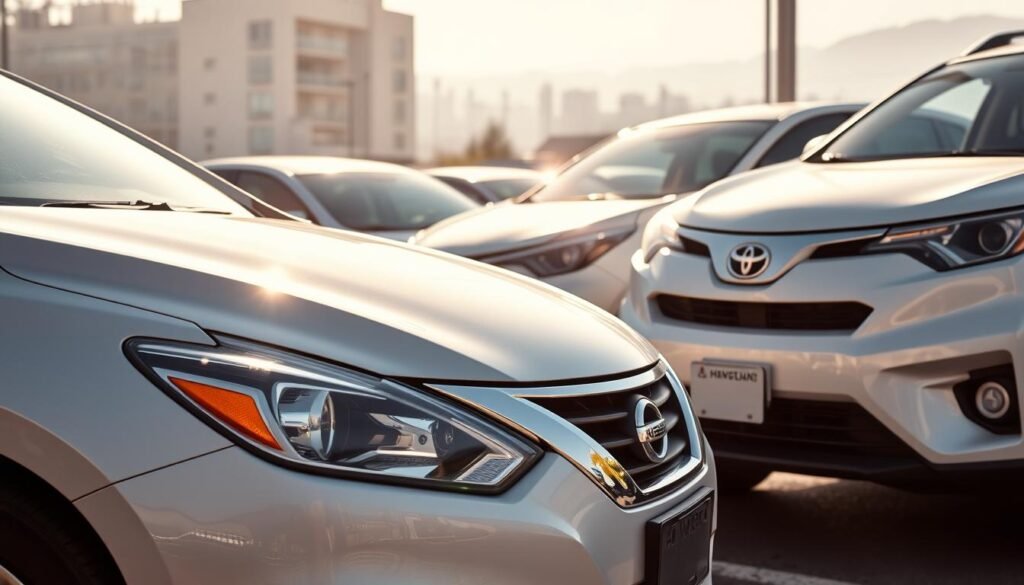
Safety Ratings and Features
Safety is key when picking a car. A detailed comparison of safety features is essential. It lets you see how different car models compare in safety ratings.
Toyota and Nissan both make safety a big part of their car designs. They offer advanced tech to keep drivers and passengers safe.
Standard Safety Features in Toyota
Toyota cars have a safety package called Toyota Safety Sense. This includes:
- Pre-Collision System with Pedestrian Detection
- Lane Departure Alert with Steering Assist
- Dynamic Radar Cruise Control
- Automatic High Beams
This blend of tech boosts Toyota’s safety in many models. It leads to great ratings from safety groups.
Standard Safety Features in Nissan
Nissan focuses on safety with its Safety Shield 360 package. It offers all-around protection. Some key features are:
- Automatic Emergency Braking with Pedestrian Detection
- Rear Cross Traffic Alert
- Blind Spot Warning
- High Beam Assist
Nissan’s dedication to safety means many models have top safety ratings. This shows their commitment to keeping drivers and passengers safe.
Fuel Efficiency: A Major Factor
When you’re looking for a new car, how much gas it uses is really important. Especially if you care about the environment.
Nissan and Toyota both have good options for saving on gas. These include hybrids and electric cars. Toyota is at the front with hybrids, like the Toyota Prius.
Nissan, however, shines with its electric car, the Nissan Leaf. These cars are great for the planet.
Hybrid and Electric Options
Toyota is famous for its hybrids, like the Prius and RAV4 Hybrid. These cars use less gas and pollute less.
Nissan, on the other hand, goes all-in with electric, with the Leaf being a big hit. It doesn’t use gas at all.
Both kinds of cars have their own benefits. Knowing about them can help you pick the right car.
Traditional Fuel Economy Comparison
Looking at regular gas cars, Nissan and Toyota both have models worth comparing. For example, the Toyota Camry often beats the Nissan Altima in gas mileage.
This shows Toyota might have an edge in fuel efficiency. Understanding these differences is key. It helps you pick a car that matches how you drive without spending too much on gas.
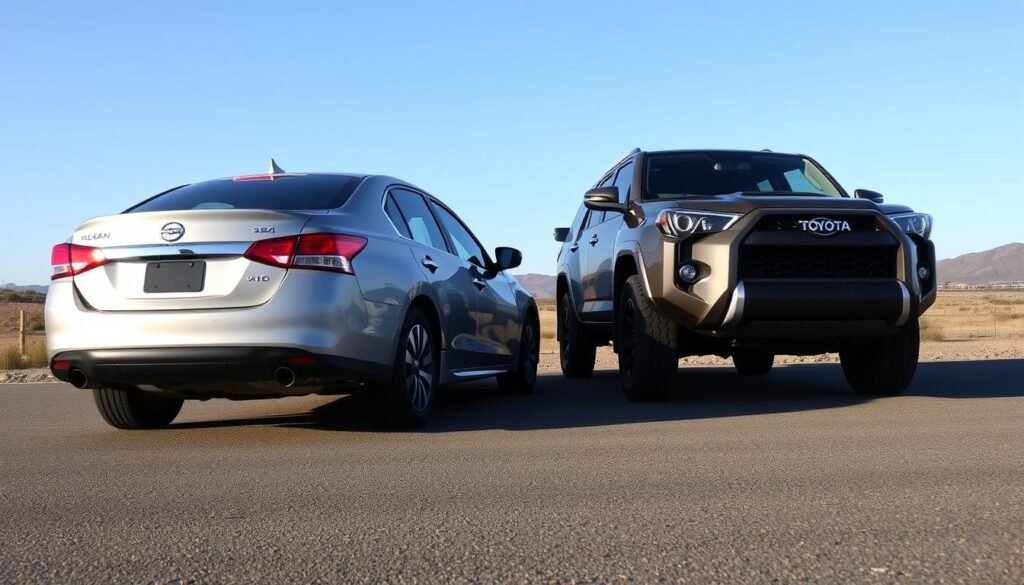
Consumer Preferences and Market Analysis
The automotive market changes a lot because of what customers like. This includes things like what’s available, trends in different areas, and who the buyers are.
For companies like Nissan and Toyota, it’s super important to know what people want. Looking at recent sales and surveys shows us which brand people prefer more.
Customers like brands that are reliable and fit their needs and how they live. Nissan often draws in younger people with its cool designs and high-tech features.
Meanwhile, Toyota attracts those who want cars that last long and are practical. The following table shows how sales numbers help us see what customers prefer in cars:
| Year | Nissan Sales (Units) | Toyota Sales (Units) |
|---|---|---|
| 2021 | 1,250,000 | 2,300,000 |
| 2022 | 1,150,000 | 2,400,000 |
| 2023 | 1,300,000 | 2,500,000 |
The numbers highlight how Nissan and Toyota compete in the car market. When looking at their popularity, think about how this matches what customers want overall.
Things like how much gas a car uses, safety, and new tech are key in deciding what car to buy.
Technology and Infotainment Systems
When choosing a car, it’s important to consider the tech features of Nissan and Toyota. Both brands have advanced a lot in tech.
Nissan focuses on connectivity, allowing easy smartphone use and app access from the dashboard. This lets you tailor your driving experience more personally.
Toyota, on the other hand, is known for user-friendly infotainment systems. Their systems make it easy to use menus and stay focused while driving.
Toyota also has voice commands, so you can manage music and navigation without looking away from the road.
| Features | Nissan Technology | Toyota Technology |
|---|---|---|
| Infotainment System | NissanConnect with smartphone integration | Entune with voice recognition |
| Standard Connectivity | Apple CarPlay and Android Auto available | Apple CarPlay and Android Auto available |
| Touchscreen Size | Up to 9 inches | Up to 12 inches |
| Navigation | Available on most models | Available on select models |
| Over-the-air Updates | Yes | No |
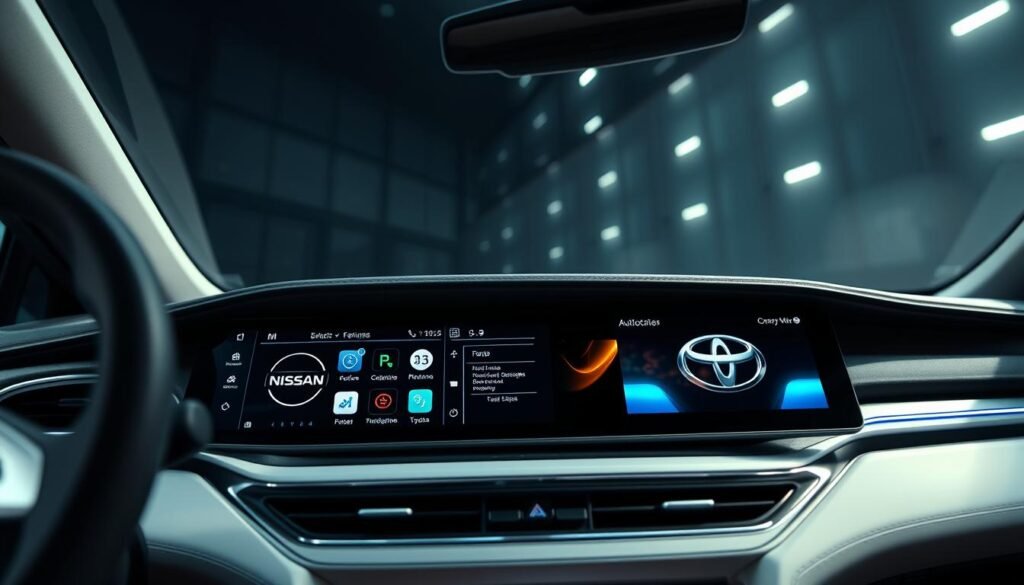
Nissan and Toyota are both upgrading their infotainment systems to meet modern needs. Knowing the tech differences between them can guide your choice.
They aim to make driving not just easier, but also more fun with these tech advancements.
Design and Aesthetics of Nissan vs Toyota
Automotive design comparison between Nissan and Toyota shows different styles for different tastes. Toyota goes for simple elegance and function.
Cars like the Camry or Corolla have smooth lines and nice interiors for those who like classic looks and dependability.
Nissan chooses boldness and fresh ideas in its nissan vs toyota design. The Altima and Rogue stand out with lively shapes and eye-catching fronts, drawing in those who want a standout car.
Their take on sporty cars like the Nissan Z mixes bold looks with power. To see their aesthetic appeal, look at how they match current trends and personal styles.
Below is a table of design details for some popular models:
| Model | Design Philosophy | Key Features | Target Audience |
|---|---|---|---|
| Toyota Camry | Practical Elegance | Sleek silhouette, spacious interior | Families, professionals |
| Nissan Altima | Bold Innovation | Dynamic styling, sport-savvy appeal | Young professionals, enthusiasts |
| Toyota RAV4 | Versatile Utility | Rugged design, adaptable features | Active families, outdoor enthusiasts |
| Nissan Rogue | Modern Sophistication | Sleek curves, tech-integrated cabin | Tech-savvy drivers, couples |
Customer Satisfaction and Reviews
When picking between Toyota and Nissan, customer satisfaction plays a big role. Consumer surveys shed light on reliability, performance, and what it’s like to own the car.
Nissan owners like the value and the brand’s lasting quality. Toyota owners, meanwhile, talk up reliability and good customer service.
Making a choice gets easier by looking at customer happiness. Key points include build quality, how comfy the car is, and gas mileage.
Reviews show what folks prefer and how Nissan and Toyota measure up.
| Dealership Experience | Nissan Ratings | Toyota Ratings |
|---|---|---|
| Customer Satisfaction Index | 82% | 88% |
| Service Department Reviews | 4.2/5 | 4.5/5 |
| Owner Loyalty | 50% | 65% |
Nissan and Toyota both offer reliable cars, but what fans like about them varies. Nissan gets nods for being practical.
For Toyota, long-term reliability stands out. These details are useful as you think over your next car buy.
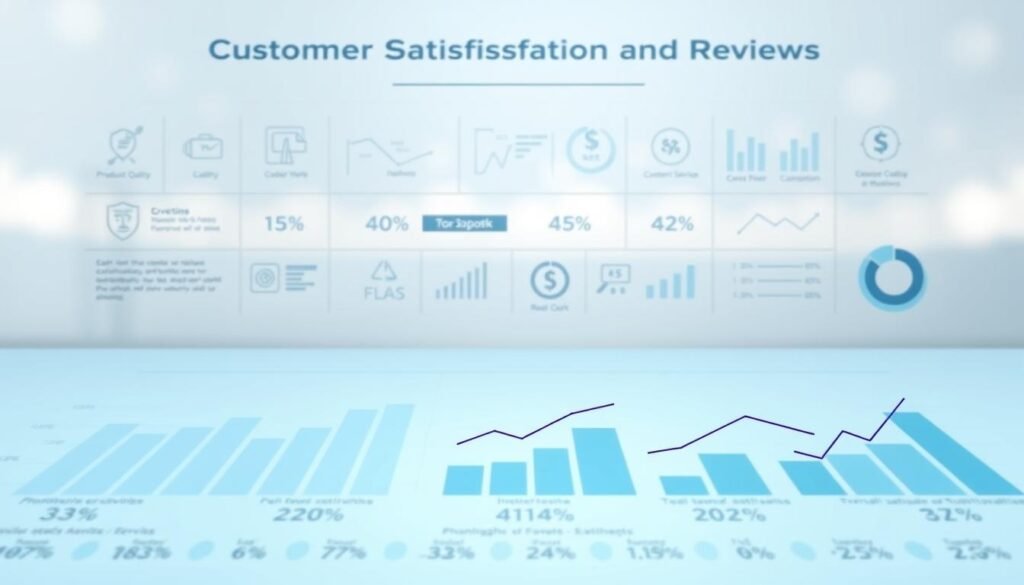
Conclusion
In the battle between Nissan and Toyota, it’s clear each offers unique pros to US buyers.
After reading this article, you’ll be better equipped to choose the right car for you. It boils down to what you value most: be it reliability, performance, or value.
Toyota shines with its strong reputation for lasting cars and high resale value. On the flip side, Nissan stands out for its cutting-edge tech and powerful performance.
The best brand for you depends on your top car priorities, like efficiency, comfort, or safety. As you decide, think about what matters most to you.
Picking the right brand can lead to a happier time with your car. Make sure your choice fits your lifestyle and driving requirements.
FAQs
Which brand, Nissan or Toyota, is more reliable?
Toyota typically ranks higher in reliability, coming in second, while Nissan is sixteenth, according to Consumer Reports. Toyota cars can often go over 200,000 miles with few problems.
What are the average maintenance costs for Nissan versus Toyota?
Toyota vehicles usually cost less to maintain because they’re reliable and need less preventative care. Nissan might be cheaper initially but might cost more for maintenance as time goes on.
How do Nissan and Toyota compare in terms of safety features?
Toyota comes with Toyota Safety Sense as standard, a bunch of technologies to keep you safe. Nissan offers Safety Shield 360. Both brands focus on keeping you safe.
What is the resale value comparison between Nissan and Toyota?
Toyota cars, like the Camry, often keep their value better than Nissan cars. This means Toyotas can be a smarter choice if you think about the future.
Which brand is known for better fuel efficiency?
Toyota is famous for its fuel-efficient cars, like the Prius with its hybrid tech. Nissan has the Leaf electric car, but Toyota has more hybrids overall.
What are the differences in performance between Nissan and Toyota vehicles?
Toyota is known for smooth, reliable engines great for everyday driving. Nissan aims for sporty performance, with a focus on speed and handling, depending on the model.
How does customer satisfaction differ between Nissan and Toyota owners?
Toyota owners often report being more satisfied, thanks to reliability and their overall experience. Nissan owners might highlight performance as their favorite thing.
What technological features do Nissan and Toyota offer?
Toyota’s infotainment systems are usually easier to use, while Nissan provides more connectivity options as standard, appealing to those who love tech.

